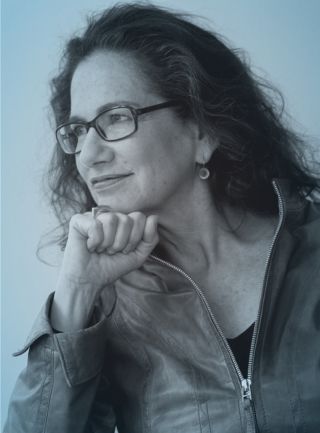Q&A with Susan Neiman
Author Susan Neiman helps mature adults balance idealism and realism in her book, Why Grow Up?
By Matt Huston published May 4, 2015 - last reviewed on June 10, 2016

For many, growing up means accepting life’s limitations and learning to settle for less. What sort of young person would welcome that? In Why Grow Up? Susan Neiman offers a more encouraging picture of maturity. A Georgia-born philosopher and longtime Berliner, Neiman deploys the writings of Rousseau, Kant, and other luminaries to sketch a model of adulthood that balances realism with idealism.
Part of being a grown-up, you write, is not succumbing to cynicism. Did you contend with this? Do your children?
I grew up in the South in the middle of the civil rights movement, and my mother was involved, so I could see the world actually getting better before my eyes. I’ve heard my kids and students wax nostalgic about the fact that I lived through that time. It’s not so much that they are cynical about growing up today; they are concerned about what kind of world they’re growing up in. But there’s hope. Young people now are much more interconnected with the rest of the world.
You recommend living in another country as a way to become more mature. Why?
The best way to understand your own culture is to see it from the outside. Otherwise you simply take issues for granted. A few years ago, I wrote for a Berlin newspaper about a conversation with an American woman. She was six months pregnant, holding a 2-year-old, and had a 6-year-old running around, and I said: “That’s not easy. How much maternity leave do you get?” She said she was allowed to work half-time for six weeks. My editor wrote back: “You mean six months, don’t you? No European reader would believe that.”
You also tout awe, an emotion children know well.
I think a lot of why fundamentalism appeals to some young people is that they are not interested in contemporary ways of growing up—that is, getting the kind of job that earns you a place in the rat race and allows you to keep buying more and bigger things. So I do think we need experiences of reverence and awe, and even transcendence, and we can have them in ways that involve the more reasonable forms of religion, but they needn’t involve that. Of course, one way to be struck by the miraculousness of the world is to see more of it.
Positive emotions, especially awe, are associated with lower levels of proinflammatory cytokines—proteins linked to depression and cardiovascular disease—finds a report published in the journal Emotion.
What would an Enlightenment thinker say about our modern environment?

Rousseau’s point that our culture creates needs that distract us from our real needs is completely modern. Think about all the ways in which adults are distracted. You couldn’t avoid Kim Kardashian’s attempt to “break the Internet.” This is basically the way children are distracted. You get your kids through the supermarket, their patience has been sorely tested, and at the checkout line, they’ve cleverly placed all these packs of garbage right at the children’s eye level.
What do the most grown-up people in your life have in common?
They have a vitality that you can see into their 80s, an openness to life, a curiosity that is extraordinarily wide-ranging—always open to a new book or film but also a conversation with a taxi driver or a vendor at a market. They’ve allowed themselves to make changes, take risks, accept failure, acknowledge mistakes, and still realize none of it is final. My aunt, who is 85, is still teaching, just finished a big book, goes hiking. I guess it takes a mixture of confidence and humility: While life strikes you blows, you’re still committed to living, but you realize that one life is far too short to learn all the things you possibly could.
